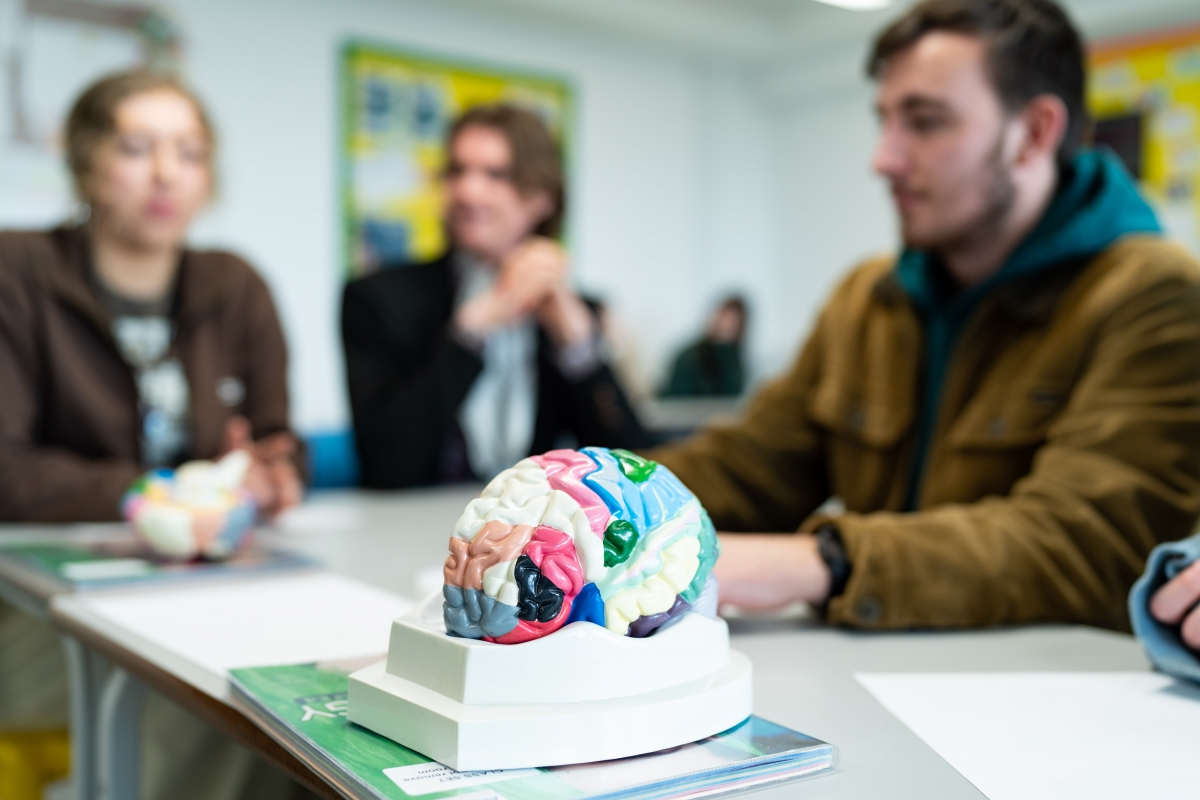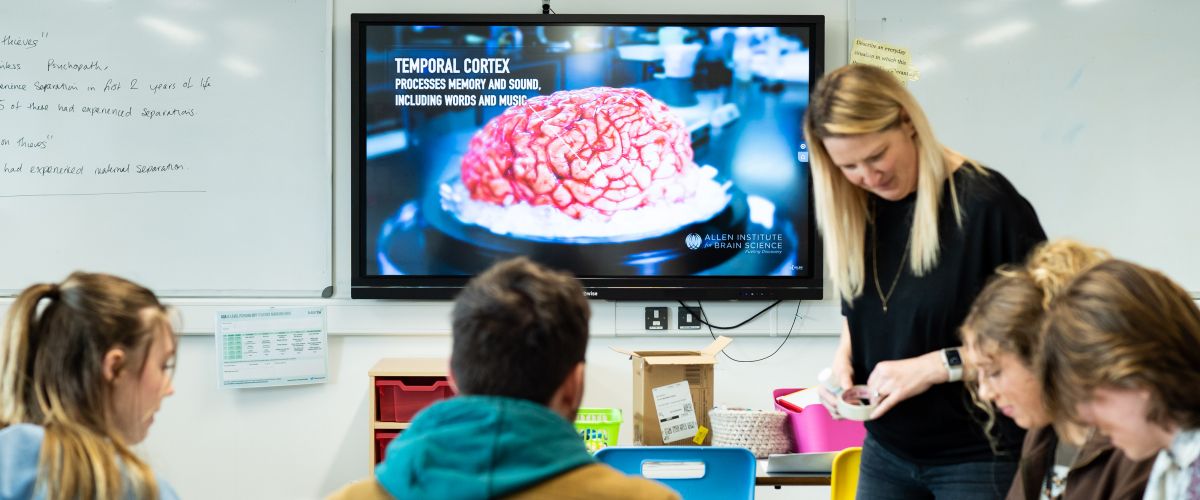A Level Psychology
A successful Psychology student has an appetite for understanding how scientific principles can be applied to human behaviour. If you are interested in people and inquisitive about their behaviour, this is the subject for you.
Key information
Social Sciences / Full Time / A Levels and Equivalent

Why choose this course?
Psychology is the science of mind and behaviour. We look at people's motivations behind different behaviours from a scientific point of view. We explore research into behaviours in an attempt to find answers to; 'are some people just born evil?', 'Are each of the hemispheres of the brain responsible for different functions and behaviours and how would we know?' Topics range from biological explanations of behaviour to how interacting with other people can influence your behaviour.
What will I learn?
A Level Year 1:
'Introductory topics in Psychology'
You will explore three compulsory topics. These include:
Social influence (including conformity, obedience, resistance to social influence and the role of social influence in social change).
Memory (multi-store model and types of long term memory, working memory model, theories of forgetting and eyewitness testimony).
Attachment (infant care-giver interaction and the role of the father, learning theory and Bowlby’s explanation for attachment, strange situation and attachment types cultural variations, Romanian orphan studies and the influence of early attachment)
'Psychology in Context' This consists of Psychopathology, Approaches in Psychology and Research Methods:
Psychopathology (definitions of abnormality, introduction to psychological disorders, characteristics of and behaviourist explanations of phobias, treating phobias, characteristics of depression and cognitive explanations of depression, treating depression, explanations of and treating OCD).
Approaches in Psychology (including Behaviourist, Cognitive, Biological)
Biopsychology (synaptic transmission autonomic nervous system, central nervous system and endocrinal system, adrenaline and fight or flight response) Research Methods (experiments, observations, self-report techniques correlations)
A Level Year 2:
In Year 2 you will expand the depth and understanding of topics covered in the first year as well as including new material:
60% of A Level
Two additional approaches will be covered (Humanistic approach and Psychodynamic approach).
Debates in Psychology (gender and culture bias, free will and determinism, nature and nurture, reductionism and holism, ethical issues in research).
You will cover three topics from a range of options including Schizophrenia, Forensic Psychology, Gender, Eating Behaviour, and Addiction.
You will develop a deeper understanding of research methods and data analysis with an extended consideration of conceptually more demanding aspects of scientific process, analysis of qualitative data and the use of inferential statistics. This includes the consideration of ethical issues in the design and implementation of research.
Assessment Arrangements
You will sit three 2 hour exams for the A Level at the end of the second year.
A Level Exams:
Paper 1: Introductory topics in Psychology
Paper 2: Psychology in Context
Paper 3: Issues and Options in Psychology
Your achievement in this subject is dependent upon excellent attendance, punctuality and effort. You will learn in a friendly atmosphere, using a variety of assessment methods:
You will be assessed regularly using online practice questions that are conducted either as homework or under timed conditions in class and given feedback on your progress. You also will be assessed regularly on linguistic terminology.
Discussions and mini research projects are a vital part of our learning process and you will be expected to contribute to those in groups and individually.
You will review your own performance in 1:1 sessions with your tutor.
You will undertake mock examinations on each unit in advance of your final exams.
Information & Support
We encourage all students to read widely and conduct their own research into the topics they are studying. You will be expected to undertake at least 4-6 hours of independent study time per week. There is a wide range of support material available in the Learning Resource Centres and on the course SharePoint site. Throughout the year, you will be able to access additional support and opportunities to stretch and challenge you.
Where will it take me?
Psychology is recognised as a valuable science A Level by both employers and universities. In addition to numeracy, communication and IT skills, you acquire a wide variety of skills – from organisation to analysis, from investigative research to a deeper understanding of the diversity of human behaviour.
Psychology at A Level or degree level provides a valuable background for a large variety of employment opportunities, e.g management, personnel, sales, advertising, marketing, teaching, uniformed services, nursing, health and welfare fields. Further training and experience beyond degree level is usually required for qualification as a professional psychologist, e.g clinical, educational, forensic, organisational psychology.
What will I need?
Five GCSEs at grade 4 or above, to include English Language or Literature at grade 5 or above, maths at grade 4 or above and 5 in at least one GCSE science.
Additional Information
Awarding Body:
AQA
To obtain more information about this course, please call: 01208 224000 or email enquiry@callywith.ac.uk



